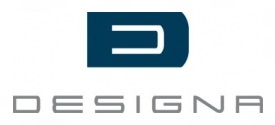Airport Parking Systems / Car Park Management Solutions / Prebooking and Mobile Applications
| Company | DESIGNA |
|---|---|
| Date | 23.11.2011 |
The digital community has found a new global gadget. We're talking about an application that is currently on everyone's lips, at least among smartphone owners – apps.
Sometimes funny, sometimes helpful. sometimes clever, sometimes superfluous. In Germany they have long ceased to be merely a nice way of passing time. And in the USA – according to the latest Flurry* study – more people are already apping than surfing. The triumphal march will doubtlessly continue, in Germany, too. So it's little surprise that a large number of companies have already pricked up their ears at the new and profitable potential fields of business. But what are these mini-programs that the users download so enthusiastically in millions to their smartphones? The iTunes Store, for example, recently broke the 10 billion download barrier. And the ever-growing range with more than 450,000 apps for the iPhone and 65,000 for the iPad/iPad2 speaks for itself. Added to that is the Google Android which also has more than 100,000 apps for downloading in the meantime. We shouldn't forget to mention that many of these apps are free of charge, while others cost only between 1 and 20 euros. Not amounts destined to seriously destabilise the household budget, but resulting in real trial orgies among the potential users.
Initially the offering was limited to small programs such as "Have you seen that, my phone is now a spirit level!", but it wasn't long before apps with "more meaningful" content started to appear. Whether reminder services for diabetics or the indispensable latest news service. Although these were originally nothing more than classic text messages, they have now matured to become successful apps. With even more personalisation possibilities and even more up-to-date contents than before. But what makes your own app such a success?
Better information. The number of vacant parking spots per car park is displayed and prevent aimless driving around. Apart from general information such as tariffs, opening hours, entrance height and address, the app also offers a routing function…. Apart from an attractive icon, a tidy and intuitively operated interface that does away with anything unnecessary and leaves everything that is necessary in view at all times, one thing is particularly important: The companies have to do their homework in advance, in other words: They have to be aware of the sense and purpose of their app offering. What do they want to achieve? A high customer loyalty? Perhaps through an improved application possibility from which only existing customers can profit? Or are they aiming at new target groups? And what about the accompanying advertising measures? There are dozens of such questions which all have to be answered before the development of a company's own app. The possibilities between offering and user interest should be finely balanced in advance, otherwise the test balloon will die a sudden death from the extremely sharp needle of disregard.
An independent benefit helps here enormously. If this can be derived from the products or services offered by your own company, then all the better. Unfortunately not every company appeals to the masses with their product or service offerings. It is therefore probably more difficult for a B2B company to successfully launch apps on the market, as ultimately the number of potentially interested users is more limited. So what is the answer?
One method that more and more companies are using is to see their own app as a PR tool. They thus sponsor a wide variety of different offerings by means of purchased content. That is one quite profitable way of creating greater awareness for your own name. And furthermore – as a cleverly structured offering – of generating a potential additional source of income.
Guide and recommendation services such as "Where to?" are being found more and more frequently in the list of the most popular apps. This is where the future lies for many companies. In cleverly structured, cross-linked offerings of services that no one has even thought of today. Smart location services will therefore unquestionably represent a large proportion of the next stage of evolution for the apps. Individually oriented to the person who in future can expect serious digital support between the wide variety of planned activities. The latest technical progress which now also permits higher display resolutions additionally makes new and better forms of representation possible, thus enabling e.g. a guide process to be attractively illustrated. The possibilities – at least from the technical point of view – are therefore unlimited.
Only 8% of the companies with their own apps are currently represented in the Top 200 Apps. But that's no coincidence. The offering was often too indifferent, not intuitive enough to use, or ñ quite simply – boring. But a lot of companies have learned the hard way, and now the others who are only just starting are profiting from that. There are already a few successful examples, the Trivago app that allows a choice and display of hotels in the vicinity, incl. price comparison and evaluations, the OPG as representative of a growing number of car park operators with their ParkApps that display the nearest vacant parking spot, incl. price tables and prebooking reservation, or the ADAC with its perfectly researched bicycle tour planner.
Hundreds of thousands of apps will be descending upon us in the coming years. The companies have the basis for their own success story in their hands. The possibilities are already there. It's all just a question of using them correctly.

